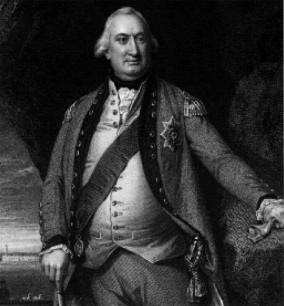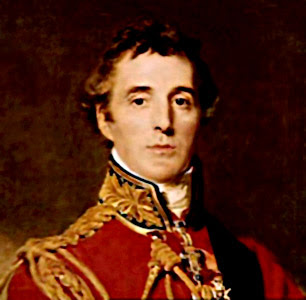Saturday, July 2, 2011
Friday, July 1, 2011
Indian History-psc
FACTS-Indian History-
1-Kushanas issued largest variety of coins
2-Artisans and craftsmen were drawn mainly from the Shudras
3-Royal writs of land grants were known as Sasanpatra whereas private writs were caled Lankikalekha or Karyalekha
4-Guilds were not involved in sale or distribution of commodities
5-Kushanas wre the first to issue gold coins on Roman pattern
6-Sind Sauvira was famous for horses and asses
Power point –Indian History
Power point –Indian History
1-Amoghvarsha patronised Jinasena the author of Adipurana
2-The gahdwalah ruler Chndradeva imposed a tax on the Muslims called Turushkadana
3-Dantidurga performed Hiranyagarbhadana
4-Al Masudi wrote the book "Muruj uj jahan"
5-Yashovarman the Chandella ruler built the Khajuraho temple
6-The chahamans of Shakambri had several other branches in places like Pratapgarh,Lata, Satvapura, Naddula,Dwalapuri and Ranthambore
HISTORY BOOKS
HISTORY BOOKS
FOR PSC PREPARATIONS
ANCIENT INDIA:
1. Wonder that was India - A.L. Bhashem.
2. Ancient India Social and Culture - Luniya
3. Ancient India - an introductory outline - D.N.Jha.
4. An Advanced History of India - R.C. Majumda, H.C. Raychaudhurai, - KalikinkarDatta
5. Ancient India - L.Mukherjee
MEDIVAL INDIA
1. Advanced study in the History of Medival India - Volume I, II, III J.L. Mehta
2. Medival India - Volume I & II Satish Chandra
3. Wonder that was India - Rizzvi
4. Medival India - L. Mukherjee
Thursday, June 30, 2011
Famous Quotations about History
Famous Quotations about History
1-History is a cyclic poem written by Time upon the memories of man. ~Percy Bysshe Shelley
2-If you want to understand today, you have to search yesterday. ~Pearl Buck
3-History is philosophy teaching by examples. ~Thucydides, The History of the Peloponnesian War
4-People are trapped in history, and history is trapped in them. ~James Baldwin, Notes of a Native Son
5-The great eventful Present hides the Past; but through the din
Of its loud life hints and echoes from the life behind steal in.
~John Greenleaf Whittier
1-History is a cyclic poem written by Time upon the memories of man. ~Percy Bysshe Shelley
2-If you want to understand today, you have to search yesterday. ~Pearl Buck
3-History is philosophy teaching by examples. ~Thucydides, The History of the Peloponnesian War
4-People are trapped in history, and history is trapped in them. ~James Baldwin, Notes of a Native Son
5-The great eventful Present hides the Past; but through the din
Of its loud life hints and echoes from the life behind steal in.
~John Greenleaf Whittier
Wednesday, June 29, 2011
Lord Canning
Lord Canning (1856-62)
1. Revolt of 1857. It was suppressed in 1858.
2. He was the last Governor General and the first Viceroy.
3. Queen Victoria’s Proclamation (1st November 1858) and passing of the India
Act of 1858. This Act ended the rule of East India Company in India
4. Doctrine of Lapse started by Lord Dalhousie was withdrawn in 1859.
Robert Clive
Robert Clive (1757-60) (1765-67)
1. Robert Clive started his career as a clerk in the English East India Company, and he became the Governor of Bengal, following the victory of the Company forces under him in the Battle of Plassey (1757). The Battle of Plassey laid the foundation of the British Empire in India.
2. Roger Drake held the post of the Governor of Bengal for a brief period before Clive.
3. Governor of Bengal twice; from 1757 - 60 and again from 1765-67.
ROUND TABLE CONFERENCES
ROUND TABLE CONFERENCES
1-The three Round Table Conferences of 1930–32 were a series of conferences organised by the British government to discuss constitutional reforms in India.
2-They were conducted as per the recommendation by the report submitted by the Simon Commission in May 1930. Demands for swaraj, or self-rule, in India had been growing increasingly strong.
Tuesday, June 28, 2011
VIJAYANAGARA EMPIRE
VIJAYANAGARA EMPIRE-psc
1-Yusuf Adil Shah was killed by Krishna Deva Raya (KDR) in the Battle of Kovilkonda
2-KDR was known as Andhra Bhoja whereas Allasani Peddana was known as Andhra Kavita Pitamaha
3-Tenali Rama who wrote Panduranga Mahamattya, adorned the court of KDR
4-Tirumalamma was a famous poetess in the court of Achyuta Deva
5-During Virupaksha II Orissa became a part of Vijaynagar empire for the first time
Lord Rippon
Lord Rippon (1880-84)
1. Appointed by the Liberal Party Government of Gladston.
2. Withdrew from Afghanistan. Abdur Rahman was recognised the Amir of Afghan.
3. Passing of the first Factory Act 1881 for the welfare of child labour. It also improved the labour conditions.
4. Repeal of Vernacular Press Act in 1882.
5. Lowered salt tax.
Monday, June 27, 2011
Warren Hastings
Warren Hastings (1772-85)
1. Became the Governor of Bengal in 1772 and Governor - General in 1774, following the Regulating Act (1773). It was the first Act passed on India by the British Parliament. Following this, the British Parliament got some law-making powers over the land in India, ruled by the English East India Company.
2. Introduced quinquennial settlement of land revenue in 1772 farming out of lands to the highest bidder, later on he reversed to annual settlement (1777) on the basis of open auction to the highest bidder
Vallabhbhai Patel
Vallabhbhai Patel
1-Vallabhbhai Patel was born on October 31, 1875, in a farmer's family in Nadiad, Gujarat.
2-His father, Zaverbhai, had served in the army of Jhansi ki Rani, and his mother, Ladbai, was a deeply religious woman.
3-Vallabhbhai's initial schooling was in Gujarati. His brother Vithalbhai, after completing middle school, had enrolled himself in English tutorial classes in a nearby town. Vallabhbhai followed suit.
Sunday, June 26, 2011
WHAT IS SWARAJ?
WHAT IS SWARAJ?
1-The concept of swaraj, or self-rule, was developed during the Indian freedom struggle.
2-In his book Hind Swaraj (1909), Gandhi sought to clarify that the meaning behind swaraj was much more than simply "wanting [systems of] English rule without the Englishman; the tiger's nature but not the tiger.
3-" The crux of his argument centered on the belief that the socio-spiritual underpinnings of British political, economic, bureaucratic, legal, military, and educational institutions were inherently unjust, exploitative and alienating.
Lord Dalhousie
Lord Dalhousie (1848-56)
1. Introduced the policy of ‘Doctrine of Lapse’ or Law of Escheat’ which postulated that Indian states having no natural heir would be annexed to the British Empire. The Indian states thus annexed were Satara (1848), Jaitpur and Sambhalpur (1849), Baghat (1850), Udaipur (1852), Jhansi (1853), and Nagpur (1854).
Lord Wellesley
Lord Wellesley (1798-1805)
1. Described himself as Bengal Tiger.
2. Created the Madras presidency after the annexation of the kingdoms of Tanjore and Carnatic.
3. Introduced the system of Subsidiary Alliance in 1798.
4. The states that signed the alliance were - Hydrabad (first to sign) in 1798 and then Mysore, Tanjore, Awadh, Jodhpur, Jaipur, Mecheri, Bundi, Bharatpur, Berar.
Colonialism-imperialism
Colonialism-imperialism
1-The colonialism is defined as the extension of a nation's sovereignty over territory beyond its borders by the establishment of either settler or exploitation colonies in which indigeneous populations are ruled, displaced, or exterminated.
2-Colonizing nations generally dominate the resources, labour and markets of the colonial territory, and may also impose socio-cultural-religious and linguistic structures on the indigeneous population.
Lord William Bentick
Lord William Bentick (1828-35)
1. The post of Governor General was re-designated as Governor General of India as per the Charter Act, 1883. As such, Bentick can be technically called the first Governor General of India.
2. The Charter Act 1833 provided that no Indian subject of Company was to be debarred from holding an office on account his religion, place of birth, descent and colour.
3. Known as the benevolent Governor General. He was the most liberal and enlightened Governor General of India.
4. Banned practice of Sati in 1829.
5. Suppressed Thugi in 1830 (military operation led by William Sleeman). Sleeman is known as the “Indian Phanotm” for his actions against the Thuggies.
6. Banned female infanticide.
Subscribe to:
Posts (Atom)














